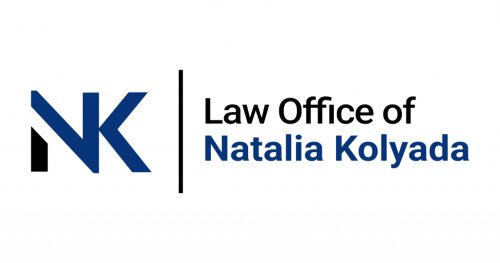Best Tax Lawyers in Boston
Share your needs with us, get contacted by law firms.
Free. Takes 2 min.
List of the best lawyers in Boston, United States
About Tax Law in Boston, United States
Boston, as part of the Commonwealth of Massachusetts, is subject to both federal and state tax laws that govern various financial aspects, including income, property, sales, and corporate taxation. Massachusetts has a unique state taxation system that features a flat tax rate for personal income, unlike the progressive schemes found in many other states. Additionally, taxes on property and sales are pivotal to the state's economy and are enforced with specific local regulations. Understanding the complexities of these laws is essential for residents and businesses in Boston to remain compliant with tax obligations and to optimize their financial liabilities.
Why You May Need a Lawyer
There are several reasons why individuals and businesses in Boston may seek legal assistance in dealing with tax-related issues:
- Tax Planning: Navigating through tax deductions, credits, and strategies to minimize tax liabilities often requires expert advice.
- Audits and Disputes: If you're facing an IRS audit or disputes over tax amounts owed, professional legal advice can help manage the situation effectively.
- Estate Planning: Proper estate planning can have significant tax implications, warranting the guidance of a lawyer to ensure that your affairs are in order.
- Business Taxation: Businesses, including startups and established entities, often need advice on corporate tax matters, sales tax, and employee-related tax issues.
- Non-compliance Issues: If you've failed to file taxes or underreported your income, a lawyer can assist in mitigating penalties and negotiating settlements.
Local Laws Overview
Tax laws in Boston are influenced by both state and federal statutes. Key aspects include:
- Income Tax: Massachusetts levies a flat rate tax on personal income, including wages, business income, and interest from investments.
- Sales Tax: The standard sales tax rate in Massachusetts is applicable to most goods and services, although certain essentials like food and clothing up to a specific threshold are exempt.
- Property Tax: Property taxes are determined by local cities and towns within Massachusetts and are based on appraised property values.
- Corporate Excise Tax: Businesses in Boston must navigate the corporate excise tax, which includes a combination of net income and property measures.
Frequently Asked Questions
What is the current income tax rate in Massachusetts?
Massachusetts imposes a flat income tax rate on personal income, which is subject to annual adjustment by the state. It's important to check with a tax professional or the Massachusetts Department of Revenue for the current rate.
Are there any local Boston taxes I should be aware of?
In addition to state taxes, Boston may impose specific local taxes, such as property taxes and specific fees related to city services.
How are capital gains taxes handled in Massachusetts?
Capital gains are typically taxed at a different rate than regular income, depending on the nature of the gain and the duration of holding the asset.
Do I need to pay sales tax on online purchases?
Yes, Massachusetts requires sales tax on most online purchases, reflecting the same rate applicable to in-store purchases.
How does Massachusetts treat inheritance and gift taxes?
Massachusetts does not impose a separate state inheritance tax, but it does tax estates above a certain threshold. There is no gift tax, but gifted amounts can impact estate tax calculations.
What are the property tax rates in Boston?
Property tax rates in Boston are decided by the city and updated annually based on property assessments. It’s crucial to check the most recent rates for accurate liabilities.
Are there tax incentives for businesses in Boston?
Yes, Massachusetts offers several tax incentives to stimulate business development, particularly in certain sectors like technology and biotech. Consulting with a tax attorney can uncover eligibility for these incentives.
How can I resolve a tax dispute with the Massachusetts Department of Revenue?
To resolve a tax dispute, individuals can work through the Department’s appeal process or seek professional legal advice to negotiate or contest assessments.
What documents are essential for filing taxes in Massachusetts?
Key documents include W-2s, 1099s for gig and freelance work, bank statements, investment income documents, and receipts for deductions.
Can I get an extension to file my tax return in Massachusetts?
Yes, Massachusetts allows for tax filing extensions, though any owed taxes must still be paid by the original deadline to avoid penalties.
Additional Resources
For those seeking further understanding or assistance with tax-related issues in Boston, consider reaching out to:
- Massachusetts Department of Revenue (DOR): Provides resources and guidance on state tax obligations and processes.
- Internal Revenue Service (IRS): Offers federal tax information, resources, and services related to audits and compliance.
- Volunteer Income Tax Assistance (VITA) and Tax Counseling for the Elderly (TCE): Free tax preparation services for individuals who qualify.
- Local Tax Attorney Firms and CPA Professionals: Offer specialized advice and services tailored to Boston residents and businesses.
Next Steps
If you believe you need legal assistance with tax matters in Boston, consider taking the following steps:
- Assess Your Situation: Determine the complexity and urgency of your tax issue.
- Consult with a Professional: Schedule an initial meeting with a tax attorney or certified public accountant to discuss your options.
- Gather Documentation: Collect all relevant financial documents to provide a comprehensive overview to your legal advisor.
- Explore Legal Advice Options: Consider free consultations offered by some legal professionals or services.
- Follow Through with Professional Guidance: Adhere to the advice given by your legal advisor to ensure compliance and resolve ongoing issues.
Lawzana helps you find the best lawyers and law firms in Boston through a curated and pre-screened list of qualified legal professionals. Our platform offers rankings and detailed profiles of attorneys and law firms, allowing you to compare based on practice areas, including Tax, experience, and client feedback.
Each profile includes a description of the firm's areas of practice, client reviews, team members and partners, year of establishment, spoken languages, office locations, contact information, social media presence, and any published articles or resources. Most firms on our platform speak English and are experienced in both local and international legal matters.
Get a quote from top-rated law firms in Boston, United States — quickly, securely, and without unnecessary hassle.
Disclaimer:
The information provided on this page is for general informational purposes only and does not constitute legal advice. While we strive to ensure the accuracy and relevance of the content, legal information may change over time, and interpretations of the law can vary. You should always consult with a qualified legal professional for advice specific to your situation.
We disclaim all liability for actions taken or not taken based on the content of this page. If you believe any information is incorrect or outdated, please contact us, and we will review and update it where appropriate.









